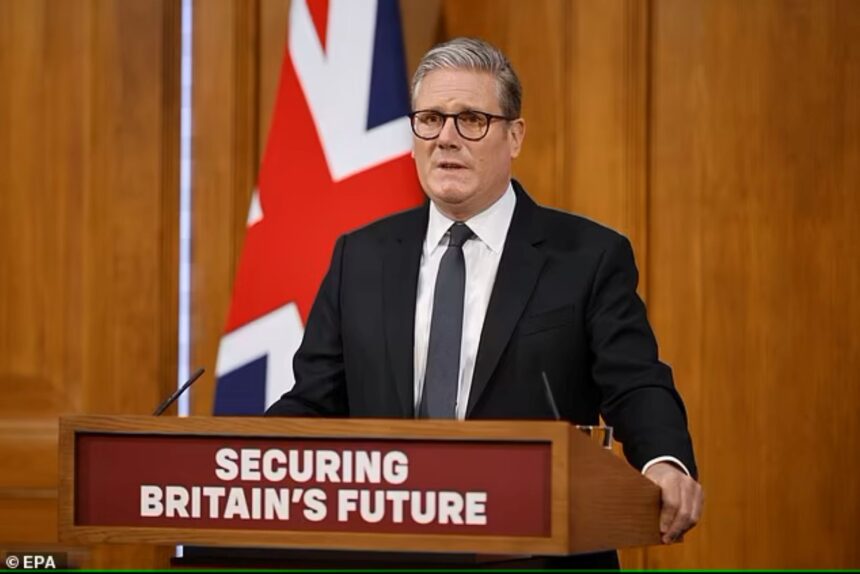British Prime Minister Keir Starmer promised today to significantly reduce immigration over the next four years, emphasizing that better immigration control is necessary to maintain social cohesion and encourage investments in the local workforce.
The issue of immigration was a key factor in the UK’s 2016 referendum vote to leave the EU. However, immigration numbers have since quadrupled, contributing to the growing popularity of the right-wing, anti-immigration Reform Party led by Nigel Farage.
Starmer stated that the nation depends on rules that establish rights, responsibilities, and obligations, warning that without them, the UK risks becoming an “island of strangers,” according to Reuters.
He also indicated that his new plan envisions a significant reduction in immigration by the end of the current parliamentary term in 2029, but did not specify numbers.
Key Measures Announced:
- Limiting visas for skilled workers to those with a degree.
- Preventing care sector companies from hiring foreign workers.
- Requiring businesses to train local workers.
- Automatic citizenship will be granted after ten years of residence, instead of the current five years. However, highly skilled workers, such as nurses, doctors, and AI specialists, will fast-track citizenship.
- Increased language requirements for adult dependents, ensuring they have basic knowledge of English to aid integration and reduce the risk of exploitation.
Political Reactions
Migration has long been a hot political topic in the UK, with critics arguing that social cohesion will be damaged if the government fails to provide adequate housing or public services for an increasing population.
However, many business sectors, including the elderly care sector, warn that they will not be able to hire enough local workers, while employers in science and technology industries warn that migration restrictions will harm their potential and the overall economic growth.
After Brexit, the number of migrants from the EU to the UK has significantly decreased, but new visa rules, an increase in foreign students, and rising numbers from Ukraine and Hong Kong have contributed to a large rise in migration numbers in recent years.
In June 2023, net migration (the difference between those entering and leaving the UK) reached a record 906,000, compared to 184,000 during the same period in 2019 when the UK was still part of the EU.
Nik Carbery, Director of the Recruitment and Employment Confederation, expressed concern that the Prime Minister’s “major intervention” had alarmed business leaders. In response to concerns from the business world, Starmer argued that the UK had seen economic stagnation during periods of high immigration.







